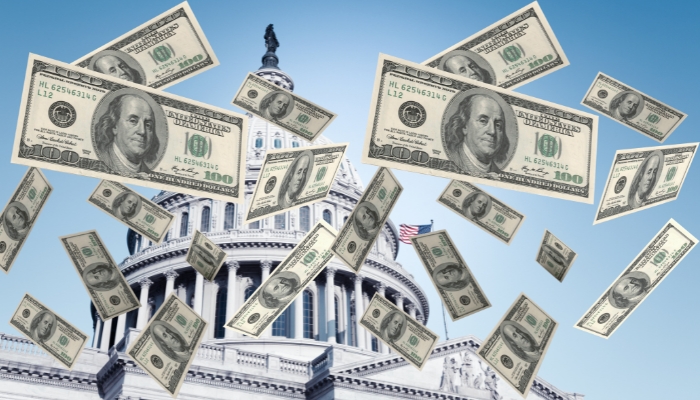Biden Unveils Ambitious Housing Affordability Plan
Anúncios
President Biden’s recent State of the Union address shed light on the dire housing affordability crisis gripping the nation, offering a comprehensive plan aimed at alleviating the burden on millions of Americans struggling to access affordable housing. With soaring mortgage rates, dwindling housing supply, and escalating rental costs, the dream of homeownership has become increasingly elusive for many individuals and families across the country.
As President Biden took to the podium to address the nation, he underscored the urgent need to address the housing affordability crisis, which has reached unprecedented levels in recent years. The inability of middle-class Americans to afford homes, coupled with the surging costs of renting, has highlighted systemic issues within the housing market that require immediate attention and decisive action from policymakers.

[su_button url=”https://www.growcredit.com/” style=”flat” background=”#ff9900″ size=”15″ icon=”icon: credit-card-alt”]DISCOVER THE GROW CREDIT MASTERCARD[/su_button]
A Multi-Faceted Approach
In response to the housing affordability crisis, President Biden unveiled a multifaceted approach aimed at tackling both demand and supply-side factors contributing to the issue. Central to his plan are two key tax credits designed to empower prospective homebuyers and incentivize existing homeowners to put their properties on the market.
The first proposed tax credit offers a substantial $10,000 refundable credit to middle-class homebuyers, effectively acting as an interest rate buy-down to facilitate home purchases. This initiative is estimated to assist more than 3.5 million buyers in closing deals on their first homes over the next two years, providing much-needed relief to aspiring homeowners burdened by skyrocketing housing costs.
Additionally, Biden introduced a $10,000 tax credit targeted at homeowners willing to sell their starter homes below the area’s median price. This one-year tax credit aims to encourage middle-class families to enter the housing market by offering financial incentives to those who sell their properties to individuals intending to live in them. By increasing the availability of affordable housing stock, this initiative seeks to address the underlying issue of housing scarcity, thus fostering a more balanced and inclusive housing market.
Legislative Action to Boost Housing Supply
In addition to tax credits, President Biden called on Congress to pass legislation aimed at constructing and renovating over 2 million homes, with the goal of closing the housing supply gap and lowering housing costs. By addressing regulatory hurdles and promoting construction in underserved communities, this legislative action seeks to stimulate housing development and increase the availability of affordable housing options for Americans nationwide.
While affordable housing advocates have welcomed President Biden’s proactive approach to addressing the housing affordability crisis, critics have raised concerns about the potential unintended consequences of his proposed initiatives. Some industry experts argue that individual tax credits may exacerbate the problem by fueling further demand for homes without adequately addressing supply constraints. They emphasize the need for comprehensive strategies that tackle both demand and supply-side factors to achieve long-term solutions to the housing affordability crisis.
Federal Reserve’s Limited Role
Amidst escalating concerns, Federal Reserve Chair Jerome Powell reiterated the Fed’s limited capacity to address the underlying housing shortage directly. While the Fed can influence borrowing costs through monetary policy, it lacks direct mechanisms to tackle supply-side constraints within the housing market. Powell emphasized the importance of long-term solutions to boost housing supply and address regulatory barriers inhibiting construction, highlighting the need for collaborative efforts between government entities, policymakers, and industry stakeholders.

In conclusion, President Biden’s ambitious housing affordability plan represents a crucial step toward addressing the pressing challenges facing American homeowners and renters. By leveraging tax credits, legislative action, and collaborative efforts, the administration aims to create a more equitable and accessible housing market for all. However, the success of these initiatives will depend on effective implementation, bipartisan support, and a holistic approach that addresses the root causes of the housing affordability crisis. As the nation grapples with this unprecedented challenge, decisive action and innovative solutions are imperative to ensure that every American has access to safe, affordable housing.
See also: EU Imposes Sweeping Changes on Tech Giants
[su_button url=”https://www.growcredit.com/” style=”flat” background=”#ff9900″ size=”15″ icon=”icon: credit-card-alt”]DISCOVER THE GROW CREDIT MASTERCARD[/su_button]





